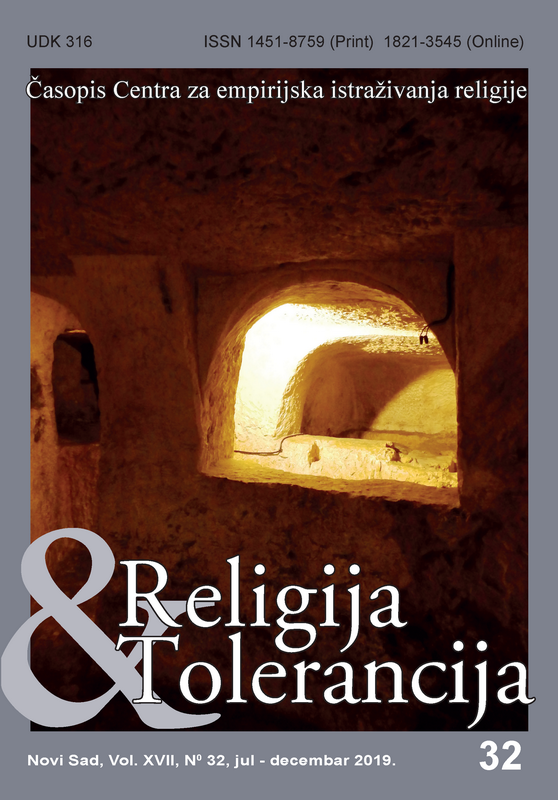ПРЕГЛЕД ФЕНОМЕНА ПРОГОНА ВЕШТИЦА НА ПРИМЕРУ ИРСКЕ
A VIEW OF THE PHENOMENON OF WITCH TRIALS IN THE EXAMPLE OF IRELAND
Author(s): Miloš ArsićSubject(s): History, Theology and Religion
Published by: Centar za empirijska istraživanja religije (CEIR)
Keywords: witchtrials;Ireland; witch;
Summary/Abstract: The paper is founded on an analysis of intensity and pattern of witch trials in Ireland and their comparison to those in the rest of the known world, primarily neighboringScotland and England. Analysed within this paper are also the problematics of terminology and difference between witch-hunts and witch trials, the nature of the existing historical records and the time distance between them and the events to which they relate. Particularly important turn of events was the transfer of control of witch trials from the ecclesiastical to the secular courts. Ireland’s case is not an isolated one, because prosecution of witchcraft should not be explained by a single but instead by a multitude of factorsa combination of which led to an escalation throughout Europe. The particularity of Ireland does not end with the number of recorded trials nor their aftermath, or with the characteristics of legislation, with the application of torture and cultural differences in understanding witchcraft in various parts of Europe, but is also recognized in nationality, religion, gender and class of the prosecuted individuals and absence of propaganda materials. The paper regards the relevance ofThe paper is founded on an analysis of intensity and pattern of witch trials in Ireland and their comparison to those in the rest of the known world, primarily neighboringScotland and England. Analysed within this paper are also the problematics of terminology and difference between witch-hunts and witch trials, the nature of the existing historical records and the time distance between them and the events to which they relate. Particularly important turn of events was the transfer of control of witch trials from the ecclesiastical to the secular courts. Ireland’s case is not an isolated one, because prosecution of witchcraft should not be explained by a single but instead by a multitude of factorsa combination of which led to an escalation throughout Europe. The particularity of Ireland does not end with the number of recorded trials nor their aftermath, or with the characteristics of legislation, with the application of torture and cultural differences in understanding witchcraft in various parts of Europe, but is also recognized in nationality, religion, gender and class of the prosecuted individuals and absence of propaganda materials. The paper regards the relevance of political contexts and the assumed geographicalperipherality of Ireland as limited.
Journal: Religija i tolerancija
- Issue Year: 17/2019
- Issue No: 32
- Page Range: 243-262
- Page Count: 19
- Language: Serbian

